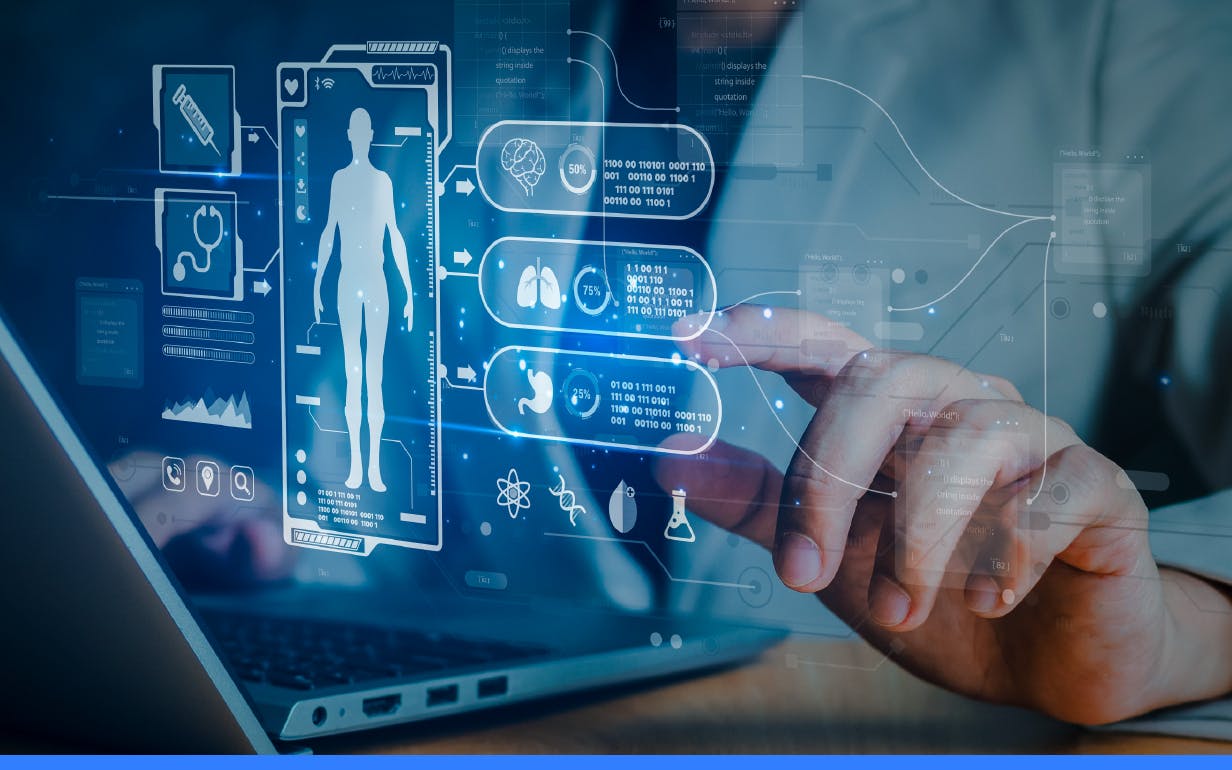The COVID19 pandemic has affected every industry differently, but given the nature of the crisis, it’s no surprise that it has impacted the healthcare industry the most.
This post explores the significant healthcare challenges and highlights what leaders in the healthcare industry need to focus on to thrive in a remote-first world.
The pandemic’s impact on the healthcare industry

Impact of pandemic on healthcare
Healthcare has borne the brunt of the impact, mainly because our medical systems were ill-equipped to deal with this crisis.
While healthcare systems were not equipped or efficient enough to deal with this unpredictable health challenge, the industry’s response has proved its resilience through the swift innovations brought into the market.
However, the threat is far from over, and the medical sector’s innovation capabilities must continue to rise to the challenge.
Here are the short-term and long-term perspectives for how the healthcare industry can proactively tackle these challenges:
- From the short-term perspective, there’s a high demand for digital healthcare, connected ecosystem, data management, security, and patient engagement systems.
- From a long-term perspective, there’s going to be a massive shift with consumer-centric, wellness-oriented, and digitally connected healthcare systems.
Opportunity areas for the healthcare industry

Artificial intelligence in medical field
The emergence of digital health and remote solutions has opened up tremendous opportunities for healthcare leaders. However, while digital transformation has been growing steadily for decades, the COVID19 pandemic has accelerated its adoption rate.
Artificial intelligence in medical field in the form of medical devices, telemedicine, and electronic healthcare records powered by blockchain are just a handful of examples of how technology and innovation have transformed the healthcare industry.
Digital transformation has been steadily reshaping how people interact with healthcare professionals.
The rapid advancements in machine learning, data mining, and artificial intelligence in medical field have allowed experts to develop digital biomarkers to optimize the process for early diagnostics.
The advancements in these technologies will also help swiftly spot unforeseen patterns within these complex datasets to build a better preventive-care system or detect severe medical conditions in their earliest stages.
Therefore, it should come across as no surprise that AI-powered diagnosis and point-of-care platforms are significant opportunities for healthcare leaders in the modern world.
What are the challenges healthcare industry leaders face today?
Businesses in nearly every industry have witnessed job positions staying vacant for months due to a shortage of talented workers.
The US Bureau of Labor Statistics revealed that the global talent shortage led to over 40 million unfilled job positions worldwide.
According to the estimates, this number will rise to over 82 million by the next decade.
A recent McKinsey Global Survey showed that nearly nine out of ten managers and executives believe their firms are either experiencing or will experience skill gaps in the next five years.
However, this global talent shortage is perhaps the most severe when it comes to software development.
Technological advancements have fueled the growing demand for engineering experts specialized in automation, programming languages, and other emerging technologies like blockchain, machine learning, big data, DevOps, augmented reality, and artificial intelligence.
With the demand for digital skillsets continuously growing in healthcare segments, the supply hasn’t kept pace with it. This massive imbalance of demand-supply of skilled software developers is one of the significant challenges healthcare industry leaders face today.
According to a recent LinkedIn survey of more than 1250 professionals, most respondents agree that this gap in the demand and supply of digital talent affects their digital transformation program. Similarly, these companies lose their competitive edge because of this impact.
Therefore, the biggest challenge for healthcare leaders is to address and attract the right talent.
However, there are quite a few obstacles for healthcare leaders to overcome when finding and recruiting talented remote developers.
- Building a large enough pipeline to attract truly talented developers.
- Developing a system to vet thousands of remote developers without consuming all of their team’s resources.
- Ensuring that remote development is simple, secure, and compliant.
The market has several competitive recruiting and staffing companies. However, these companies are not the best option for sourcing experienced remote developers.
- They don’t have a global reach.
- Since they don’t cater to a single vertical, they cannot attract highly experienced developers.
- They don’t have a specialized vetting process to recruit skilled engineers.
Turing.com helps tackle all these existing challenges in the market.
How is Turing.com positioned to help these healthcare industry leaders?
Turing.com helps bridge the supply and demand gap by developing digital talent clouds and assisting enterprises in building a global talent pool at scale.
How are we doing it?
Turing.com sources engineers from over 200+ countries, vets them to a Silicon-Valley standard, matches them based on customer requirements via AI, makes it easy for developers and enterprises to collaborate securely, and extracts the complexity of hiring global employees.
200+ enterprises are currently leveraging Turing.com to spin up their dream software engineering teams in multiple ways:
- Building a globally distributed workforce by taking advantage of Turing.com’s global community of 1M+ developers from all parts of the world.
- Addressing demand-elasticity, which can last anywhere between 6 to 18 months. Enterprises that fall in this category typically aim for speed and quality while hiring remote developers. Turing.com has taken a process that usually takes months and condensed it to mere days.
- Developing a geo-focused development team by hiring talented developers from countries like Brazil and Argentina because they offer an excellent timezone overlap. Turing.com’s local community helps such companies source the right developers to build their geo-focused team at a reasonable timeframe.
Furthermore, Turing.com takes care of the complexities of building a global workforce by handling the payroll, tax forms compliance, and all other complicated aspects of international hiring.
Sign up with Turing.com today, tell us what you’re looking for, and our Intelligent Cloud System will get you pre-vetted developers within days instead of weeks or months.
Susmin Joseph
Want to accelerate your business with AI?
Talk to one of our solutions architects and start innovating with AI-powered talent.



